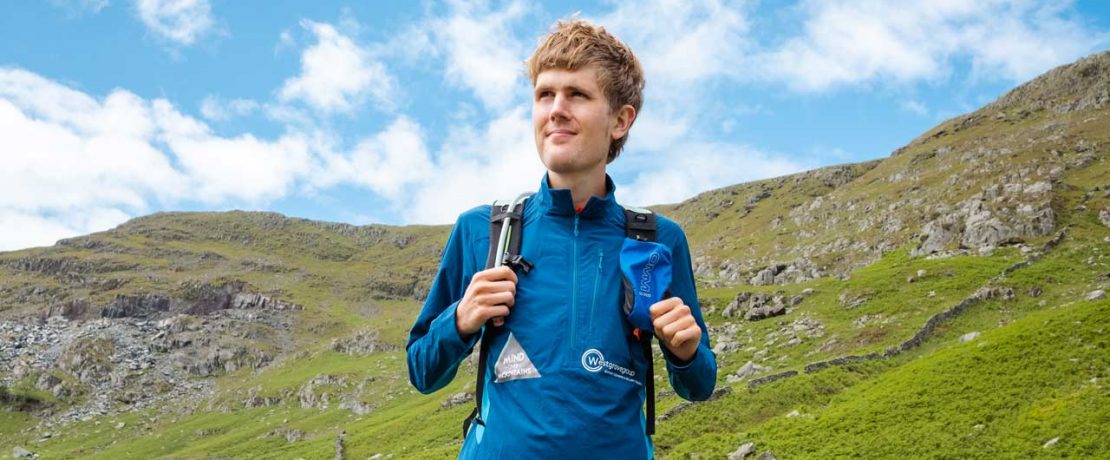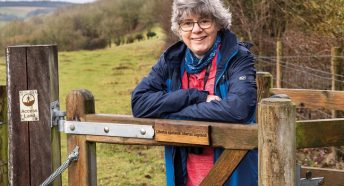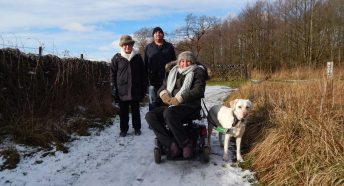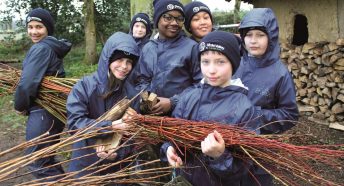'For men especially, there’s something about walking side by side with people that makes it easier to talk than face-to-face'
Alex Staniforth, an ‘adversity adventurer’, tells us what the outdoors has taught him about mental health and resilience – and how other people, especially men, can use it for wellbeing.
I’m Alex Staniforth. I’m an adventurer, motivational speaker and director of a mental health charity, Mind Over Mountains. I’m 25 and grew up in Kelsall, in leafy Cheshire, but now live in Kendal on the edge of the Lake District.
In 2014 and 2015 I made two attempts on climbing Mount Everest, but now I’m focusing on ultra-endurance challenges closer to home, most recently running the National 3 Peaks – climbing Ben Nevis, Scafell Pike and Snowdon – and running the 452 miles between in 9 days 12 hours.
That journey has evolved towards trying to inspire others not to settle for base camp and to achieve their own potential, through my speaking, charity fundraising and my books, Icefall and Another Peak.
‘The grandeur of the mountains offered an escape and a sense of freedom from life adversity’
I was lucky to live on the edge of Delamere Forest, where we regularly walked our dogs, and I spent many weekends away in North Wales with my parents. So I always felt at home exploring nature and became fascinated by local wildlife in particular.
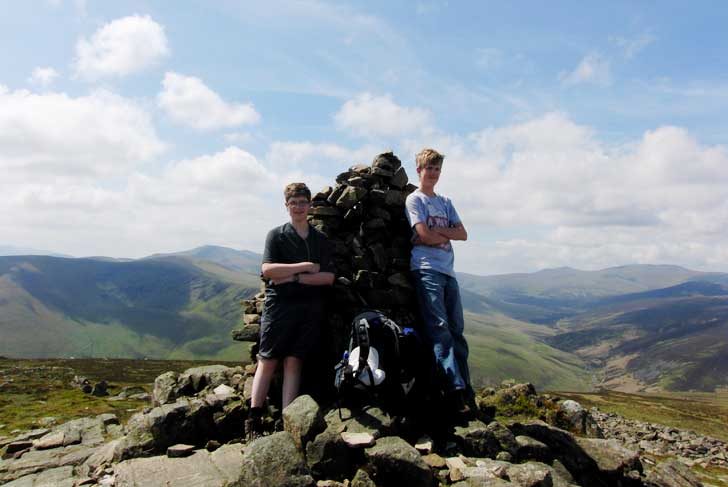
I was 14 years old when I first went hillwalking in the Lake District, and from there, the outdoors started to inspire ways of challenging myself and building confidence.
The realisation came that I had a choice; that we don’t always get to choose our challenges in life, but we can choose how we respond. I shifted from a victim to a victory mindset, giving me a sense of control that I otherwise didn’t know existed.
The grandeur of the mountains offered an escape and a sense of freedom from life’s adversities, particularly epilepsy, bullying, stammering, crippling low self-confidence, and anxiety – a place where it was only myself competing with the environment around me.
‘Watching the sunrise on a mountain by myself and running down is my favourite thing in the world’
The outdoors is still my arena for personal challenge but now it also plays a huge part in maintaining wellbeing on a daily basis. Even if I don’t always feel like it, there’s little question that I’ll feel better and glad for getting out – it almost happens as routinely as brushing my teeth or having a shower.
I can manage a few days without it, but I’m not as productive or creative, and sometimes stress or low mood set in unless I find another way to empty what feels like an overflowing bucket. Exercise offers that temporary reset, forcing your attention elsewhere so you can come back to something with a whole new perspective and energy.
Nowadays I’m mostly running on the local trails or fells as it offers more of a challenge and the freedom to go further, faster, and explore new places. I’m fortunate to have the Lake District so close by, and I think it will take me quite a while to explore all of it!
Most days I’m training towards a challenge or generally building fitness, but even on rest days I always get out in some way. I enjoy road cycling, wild camping and wild swimming when the weather’s good.
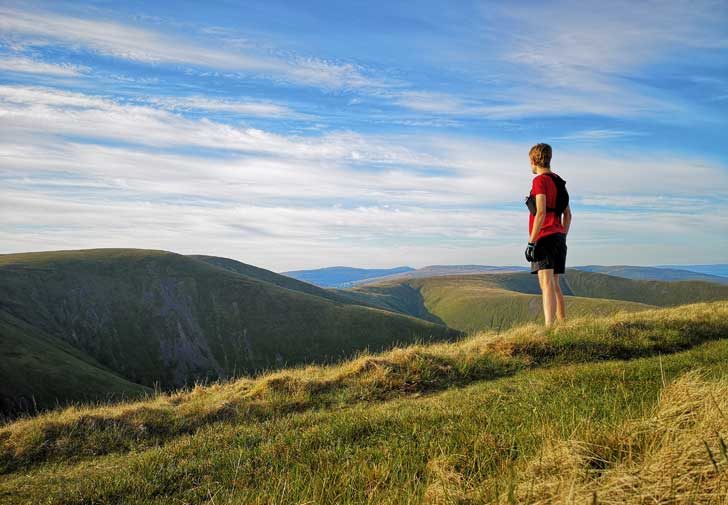
Watching the sunrise on a mountain by myself and running down is my favourite thing in the world. I hope it never loses the magic.
‘The unexpected beauty of nature fills me with the hope that there are better things to come’
Exercise is good for mental health for the obvious reasons – endorphins, releasing stress and anxiety, boosting self-esteem and improving physical fitness – but exercising in nature brings so many extra benefits.
Exposure to daylight for vitamin D is just one of those, but there’s promising research showing how green spaces have a physiological effect on us that can reduce our risk of depression and other mental health conditions.
Personally, I’ve always found that exercising outdoors gives me a temporary escape, a sense of perspective with my problems, and the unexpected beauty of nature fills me with the hope that there are better things to come. It would be wrong to treat the outdoors as a ‘cure’, but it’s a powerful tool for building our resilience.
For men especially, there’s something about walking side by side with other people that makes it easier to talk than face-to-face, where we tend to avoid showing a perceived weakness.
In the work with my charity, we’ve seen military veterans saying the programmes have given them a chance to enjoy the outdoors without the pressure or expectation of challenging themselves, successful executives confronting social anxiety within our group environment and others rediscovering a sense of purpose in helping others on the programme.
In natural environments, we have the rare opportunity to disconnect from busy family or working lives, and a place without competition or comparison. Personally, I’ve always felt at ease talking about my eating disorder in a mountain environment: it’s like what’s said in the mountains, stays in the mountains.
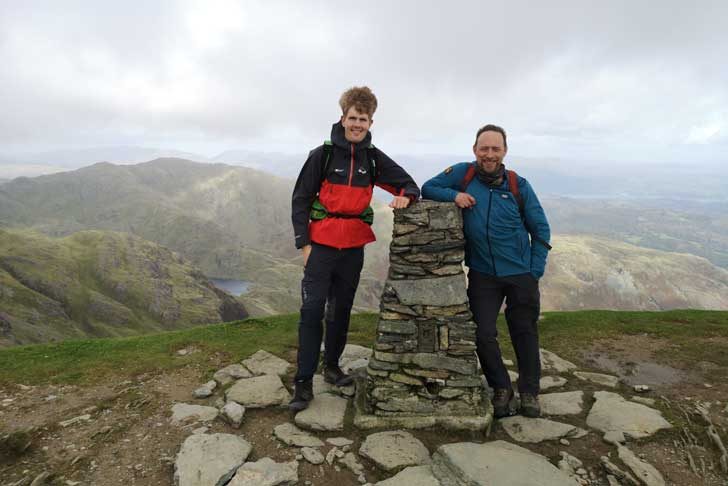
Unfortunately, for many living in cities, deprived areas or on low incomes, travelling to the countryside isn’t always financially achievable or practical enough to become a regular part of their lives. That’s why when I started my charity, we were determined to ensure we offered bursaries to make sure there were no barriers to involvement at all.
‘The hardest part is always the first step’
We can’t control lockdown but we can control what we do with it. When so many things have been cancelled and restricted, the countryside is one place that has fortunately remained business as usual. It’s so important to get regular time outdoors during the winter, as well as in fairer weather. How can we expect to maintain positive wellbeing if we’re stuck indoors all day?
The hardest part is always the first step, especially on cold, dark winter nights. My tips on forcing yourself to get out and about? I think it’s about knowing yourself, breaking it down into individual steps and processes to find where the biggest barriers are.
If you’re coming back to a centrally-heated warm house and it’s cold outside, it makes it that much harder to then venture outside again, so I leave my running gear ready to go to reduce the time it takes me to change and limit the opportunities for procrastination to set in! And feeling comfortable and safe with equipment like a headtorch and hi-vis really makes a difference, too.
Luckily, as I write this, during lockdown part two, we’re still allowed to meet with one other person. Arranging to walk, run, do whatever with someone else creates that accountability and makes us much less likely to cancel.
Even if it’s only 15 minutes, we should try making outdoors time part of our daily routine, such as taking a walk during your lunch breaks or going for a walk or a run in the morning instead to replicate your commute if you’re working from home.
Joining a virtual challenge or setting a personal goal is a great way to keep motivated, and getting a friend involved will help us stay accountable and more likely to keep active.
Whilst we can’t all get to our favourite places or the National Parks right now, it’s a great opportunity to think differently, look closer to home and visit the places we’d usually overlook. These small wins only add to the sense of achievement and reinforce positive habits.
‘In a time of so much anxiety, bad news and uncertainty, nature is so important’
Mind Over Mountains is a new charity aiming to restore mental health through outdoor experiences.
We combine guided hillwalking with professional coaching, counselling, mindfulness and inspirational speakers to create a safe and confidential space for people to walk and talk. We have a small core team with lived experience and committed to the benefits of nature for mental health.
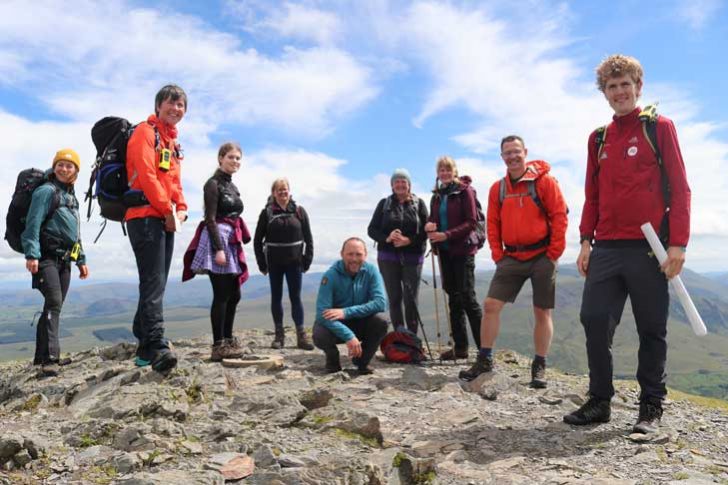
Our events take place in UK National Parks, and we’ve made sure that we offer financial support for people in hardship or other difficult circumstances so we can support those who need us most.
Participants have told us that the walks have acted as a ‘circuit-breaker’ to their emotional state and that being outdoors in a group of people with shared experiences has had a hugely beneficial impact. One walker, Angela, said ‘There was no pressure. What was hugely important to me was the implicit understanding that there were people with us who had also been through trauma and difficult times and nothing needed to be explained.’ And Nicola said ‘I thoroughly enjoyed every second of it and feel really invigorated and uplifted tonight.’
In a time of so much anxiety, bad news and uncertainty, nature is so important, and can help to fill the gap when the demand for mental health support is dramatically increasing. Mind Over Mountains are hoping to offer some walking events to keep people connected through the pandemic, restrictions permitting, so please visit our website if you’d like to find out more: www.mindovermountains.org.uk and you can find me on Facebook and Twitter.
